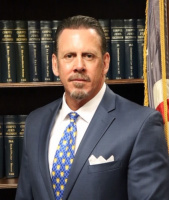Unadilla Felony Lawyer, Nebraska
Timothy P. Sullivan
✓ VERIFIEDCriminal, DUI-DWI, Misdemeanor, Felony, Visa
Experienced, Effective, Aggressive Representation
Timothy Sullivan is a lawyer based in Lincoln, NE who can assist with criminal defense, family law, immigration, and more.
Thomas Jay Olsen
Criminal, Felony, DUI-DWI, Domestic Violence & Neglect, Firearms
Attorney Tom Olsen handles criminal defense cases in Omaha, Douglas County and throughout Nebraska. With over 30 years experience, Tom is generally co... (more)




